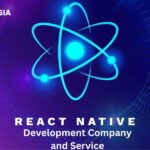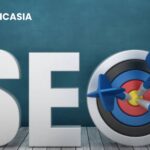In today’s rapidly evolving digital world, the intersection of technology and innovation is driving transformation across industries. From automating diagnostics in hospitals to deriving business insights from vast datasets and building end-to-end web applications, we are witnessing an unprecedented technological renaissance. Three of the most impactful domains leading this revolution are AI in healthcare, data science and artificial intelligence, and full stack development. These fields are not only reshaping the professional landscape but also creating enormous opportunities for individuals and organizations alike.
AI in Healthcare: Saving Lives with Smarter Decisions
The integration of AI in healthcare is one of the most promising advancements in modern medicine. Artificial Intelligence is enhancing patient outcomes, reducing the burden on healthcare professionals, and transforming traditional treatment models.
AI-powered diagnostic tools, for example, can now detect diseases like cancer, diabetes, and cardiovascular issues with accuracy that rivals or even surpasses human experts. Algorithms trained on thousands of medical images can detect anomalies in radiology scans, often catching what the human eye might miss. This leads to earlier diagnosis, faster treatment, and significantly improved patient prognoses.
Additionally, Natural Language Processing (NLP) tools are helping doctors manage electronic health records (EHRs), extracting meaningful insights from patient notes, lab reports, and clinical histories. AI chatbots and virtual health assistants are also playing a key role in primary care and mental health support, especially in underserved areas.
Predictive analytics, another facet of AI, is enabling hospitals to anticipate patient needs, manage resources efficiently, and reduce readmission rates. This is particularly beneficial for intensive care units (ICUs), where real-time monitoring and alert systems powered by AI can detect subtle changes in a patient’s condition before it becomes critical.
While challenges around data privacy, regulation, and ethical deployment remain, the impact of AI in healthcare is profound and growing rapidly. As this technology continues to evolve, it holds the potential to make healthcare more personalized, proactive, and accessible.
Data Science and Artificial Intelligence: The Engines of Modern Innovation
At the heart of digital transformation lies data science and artificial intelligence. These interconnected fields are empowering businesses to make smarter decisions, create personalized customer experiences, and uncover insights that were previously hidden.
Data science involves extracting knowledge from structured and unstructured data using statistical methods, programming, and machine learning. Meanwhile, AI simulates human intelligence processes, such as learning, reasoning, and self-correction. Together, they form a powerful combination that is being adopted across sectors—from finance and marketing to manufacturing and education.
For instance, retailers use AI-driven recommendation engines to suggest products based on customer behavior. Banks rely on data science models to detect fraudulent transactions and assess credit risk. In agriculture, AI-powered drones analyze crop health and optimize irrigation. Even in entertainment, platforms like Netflix and Spotify leverage machine learning to keep users engaged through personalized content suggestions.
One of the key drivers behind the success of data science and artificial intelligence is the abundance of data. With the rise of the Internet of Things (IoT), social media, and mobile applications, organizations now have access to an ocean of data. However, the real value lies not in the data itself but in the ability to analyze and act on it.
This is where skilled professionals come in. There is a massive demand for data scientists, machine learning engineers, and AI specialists who can build models, interpret outputs, and make data-driven decisions. For aspiring professionals, investing in training and certification in these fields is a pathway to high-impact careers in the digital economy.
Full Stack Development: Powering the Digital Experience
While AI and data science focus on intelligence and insights, full stack development is all about execution—bringing digital ideas to life. A full stack developer course equips individuals with the skills to build robust, responsive, and scalable web applications from end to end.
The term “full stack” refers to the complete set of technologies and layers involved in a software application: the front-end (user interface), back-end (server-side logic), database, and even version control and deployment. Full stack developers are often considered “Swiss Army knives” of the tech world, capable of navigating both client- and server-side programming.
On the front-end, full stack developers work with languages like HTML, CSS, and JavaScript, along with frameworks like React or Angular, to create seamless and interactive user experiences. On the back-end, they use languages like Python, Node.js, or Java, coupled with databases such as MongoDB or PostgreSQL, to build secure and efficient systems.
The growing popularity of cloud computing and DevOps has further expanded the full stack developer’s role to include cloud services (e.g., AWS, Azure) and CI/CD pipelines. This comprehensive understanding of the entire development lifecycle makes full stack developers invaluable assets to startups and large enterprises alike.
With digital products becoming the face of modern businesses, the demand for full stack developers is soaring. A well-structured full stack developer course not only teaches technical skills but also fosters problem-solving, project management, and agile development practices. Whether you’re building an e-commerce platform, a social network, or an enterprise dashboard, full stack skills are crucial for turning vision into reality.
The Convergence: Future-Proofing Your Career
The synergy between AI in healthcare, data science and artificial intelligence, and full stack development is where the future is headed. Imagine a scenario where a full stack developer builds a telemedicine platform, a data scientist creates models to predict patient outcomes, and an AI system analyzes those predictions to support clinical decision-making. This multidisciplinary approach is already becoming the norm in tech-driven organizations.
For students and professionals looking to future-proof their careers, it’s important to understand how these domains complement each other. Full stack development gives you the power to build applications, data science helps you analyze and draw conclusions from data, and AI enables your systems to learn and improve over time.
Educational institutions and e-learning platforms are increasingly offering integrated programs that combine these skill sets. By enrolling in a full stack developer course with modules in machine learning or data visualization, learners can gain a competitive edge in the job market.
Conclusion
As we move further into the digital age, the impact of technology on our lives will only intensify. AI in healthcare is making medical systems smarter and more efficient, data science and artificial intelligence are enabling intelligent decisions across industries, and full stack development is empowering developers to build the digital experiences we rely on every day.
The convergence of these domains represents a unique opportunity—not just for businesses and institutions, but for individuals ready to embrace change and learn new skills. Whether you’re a student, a working professional, or someone looking to switch careers, now is the perfect time to explore these transformative fields and become part of the next wave of innovation.















